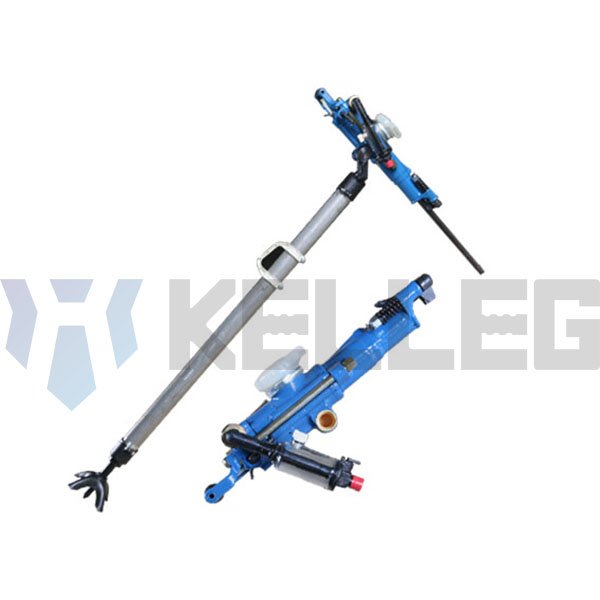In the rock drilling process, in addition to the use of rock drilling tools, rock drills are also essential. Because the rock drill is a simple, lightweight, and economical tunneling machine, the scientific use, and maintenance of the rock drill can ensure safe production and have great significance for improving performance, service life, and production efficiency. Because the operation of the rock drill mainly includes the preparations before starting and the precautions during operation, to let everyone understand clearly, we will introduce it to you in two articles. Today we will mainly introduce the preparations before starting the rock drill.

- The newly purchased rock drill is coated with viscous anti-rust grease inside, which must be cleaned before use. During reassembly, lubricating oil should be applied to the surface of each moving part. After installation, connect the rock drill to the compressed air pipeline, run it with little wind, and check whether its operation is normal.
- Inject lubricating oil into the automatic oiler. Common lubricating oils are 20#, 30#, and 40# oil. The container for lubricating oil should be clean and covered to prevent rock dust and dirt from entering the oiler.
- Check the wind and water pressure at the workplace. The wind pressure is 0.4-0.6MPa. Too high wind pressure will accelerate the damage of mechanical parts, and too low wind pressure will reduce the drilling efficiency and rust mechanical parts. The water pressure is generally 0.2-0.3MPa. If the water pressure is too high, the water will pour into the machine to destroy the lubrication, reduce the efficiency of the rock drill and rust the mechanical parts. If it is too low, the flushing effect will be poor.
- Check whether the used drill tools meet the quality requirements. Prohibit to use of unqualified drilling tools.
- The windpipe is connected to the rock drill, and the air should be released to blow out the dirt in the pipe. Connect the water pipe and flush the dirt at the joint. The windpipe and water pipe should be tightened to prevent falling off and injuring people.
- Insert the shank adapter into the rock drill head, and turn the drill tool clockwise with force. If it does not move, it is stuck in the machine and should be dealt with in time.
- Tighten the connecting bolts and check the operation of the propeller. It must be running well before starting work.
- The guideway rock drill should set up the pillar and check the operation of the propeller. The air leg rock drill and the upward rock drill should be checked for the flexibility of the air leg.
- For hydraulic rock drills, the hydraulic system should be required to have good sealing to prevent the hydraulic oil from being polluted and to ensure that the hydraulic oil has constant pressure.
The preparatory work before starting the rock drill is inevitable, and what we share with you is only a part of it. Because the rock drill has many types and the rock drill of each manufacturer may be different in practical applications, you can refer to the instructions for use of rock drills for better use and maintenance.